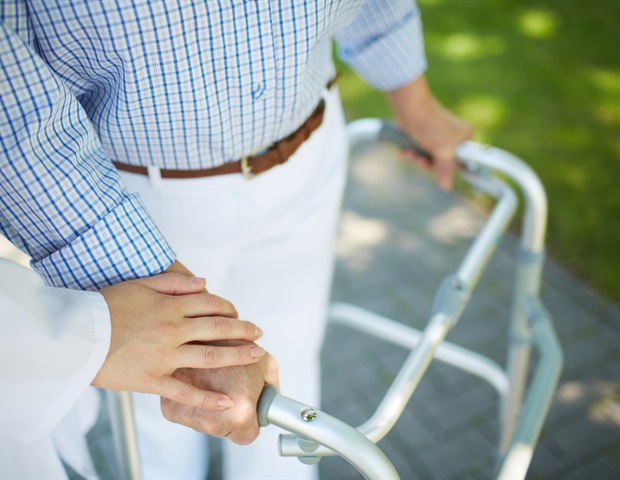
The American Academy of Orthopaedic Manual Physical Therapists (AAOMPT) has released a position statement opposing "degenerative disc disease" as a diagnostic term for the cause of neck and back pain. AAOMPT publicly announced its position during the organization's annual conference in Orlando, Florida, on Oct. 25.
Degenerative disc disease is a commonly used term to diagnose an age-related condition that happens when one or more of the discs between the vertebrae of the spinal column changes shape and size. These changes are a normal process of aging and not linked to a disease. The use of the term 'disease' to diagnose these changes misinforms patients and may lead to unnecessary treatment. We believe that this term does more harm than good."AAOMPT recommends that patients seeking care for spinal pain undergo a comprehensive examination to rule out serious medical conditions. Non-pharmaceutical and noninvasive treatments including physical therapy should be the first line of care for patients that do not improve initially on their own. In the absence of trauma or other systemic health concerns, practice guidelines indicate that imaging studies for patients with low back pain are not necessary before a thorough trial of conservative therapy is completed.
Elaine Lonnemann, president of AAOMPT
AAOMPT says patients often react to the label 'degenerative disc disease' by losing hope and seeking more invasive and higher-risk treatments. They avoid beneficial physical activity for fear that exercise and movement will worsen their condition, possibly leading to chronic pain. The majority of spinal pain is self-limiting and can be managed appropriately without the need for medications or risky procedures such as injections or surgery. For those individuals who do need care, AAOMPT supports and encourages early physical therapy instead of high-risk procedures and medication. AAOMPT strongly recommends that clinicians avoid using the diagnosis of degenerative disc disease.
"We also need to consider the role that orthopedic manual physical therapists can play in addressing the opioid crisis," Lonnemann says. "Opioids are prescribed for back pain much more commonly than physical therapy. Physicians might prescribe opioids when alternatively, physical therapists could help patients manage their neck and back pain before it becomes chronic. Physical therapists must be a part of the conversation when it comes to the care and management of spinal pain conditions. First line treatment options recommended by most clinical practice guidelines can be effectively delivered by a physical therapist."
Orthopedic manual physical therapy is a specialized area of physical therapy practice that uses advanced clinical reasoning to determine the most effective patient management approach that integrates hands on skilled manual techniques, targeted exercises and education to optimize outcomes including reduction in pain and improvement in function.
American Academy of Orthopaedic Manual Physical Therapists






No comments
Post a Comment